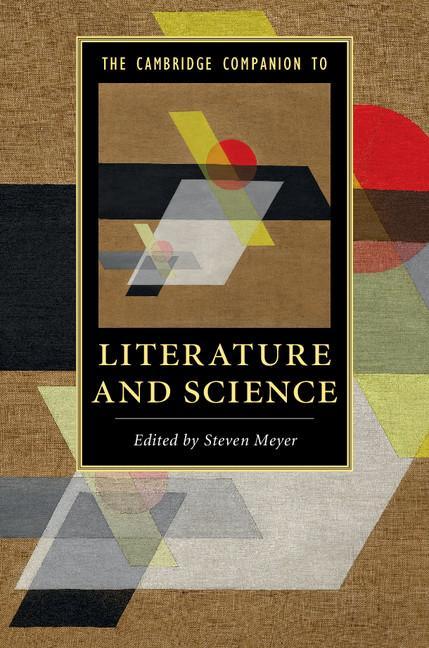Cambridge Companions to Literature

Cambridge Companions to Literature
In 1959, C. P. Snow lamented the presence of what he called the 'two cultures': the apparently unbridgeable chasm of understanding and knowledge between modern literature and modern science. In recent decades, scholars have worked diligently and often with great ingenuity to interrogate claims like Snow's that represent twentieth- and twenty-first-century literature and science as radically alienated from each other. The Cambridge Companion to Literature and Science offers a roadmap to developments that have contributed to the demonstration and emergence of reciprocal connections between the two domains of inquiry. Weaving together theory and empiricism, individual chapters explore major figures - Shakespeare, Bacon, Emerson, Darwin, Henry James, William James, Whitehead, Einstein, Empson, and McClintock; major genres and modes of writing - fiction, science fiction, non-fiction prose, poetry, and dramatic works; and major theories and movements - pragmatism, critical theory, science studies, cognitive science, ecocriticism, cultural studies, affect theory, digital humanities, and expanded empiricisms. This book will be a key resource for scholars, graduate students, and undergraduate students alike.
PRP: 244.80 Lei
Acesta este Prețul Recomandat de Producător. Prețul de vânzare al produsului este afișat mai jos.
220.32Lei
220.32Lei
244.80 LeiIndisponibil
Descrierea produsului
In 1959, C. P. Snow lamented the presence of what he called the 'two cultures': the apparently unbridgeable chasm of understanding and knowledge between modern literature and modern science. In recent decades, scholars have worked diligently and often with great ingenuity to interrogate claims like Snow's that represent twentieth- and twenty-first-century literature and science as radically alienated from each other. The Cambridge Companion to Literature and Science offers a roadmap to developments that have contributed to the demonstration and emergence of reciprocal connections between the two domains of inquiry. Weaving together theory and empiricism, individual chapters explore major figures - Shakespeare, Bacon, Emerson, Darwin, Henry James, William James, Whitehead, Einstein, Empson, and McClintock; major genres and modes of writing - fiction, science fiction, non-fiction prose, poetry, and dramatic works; and major theories and movements - pragmatism, critical theory, science studies, cognitive science, ecocriticism, cultural studies, affect theory, digital humanities, and expanded empiricisms. This book will be a key resource for scholars, graduate students, and undergraduate students alike.
Detaliile produsului










